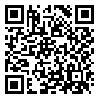Volume 7, Issue 1 (March 2025)
IEEPJ 2025, 7(1): 307-318 |
Back to browse issues page
Download citation:
BibTeX | RIS | EndNote | Medlars | ProCite | Reference Manager | RefWorks
Send citation to:



BibTeX | RIS | EndNote | Medlars | ProCite | Reference Manager | RefWorks
Send citation to:
Mahmoudi S, Sharafi M, Khalaj M. (2025). The Effect of Gamification-Based E-Learning on Cognitive Engagement and Flexibility of School Children. IEEPJ. 7(1), 307-318. doi:10.22034/7.1.307
URL: http://ieepj.hormozgan.ac.ir/article-1-752-en.html
URL: http://ieepj.hormozgan.ac.ir/article-1-752-en.html
1- Department of Educational Science, Payame Noor University, Tehran, Iran , mahmoudi.s@pnu.ac.ir
2- Department of Educational Science, Payame Noor University, Tehran, Iran
3- Department of Educational Science, Payame Noor University, Tehran, Iran
2- Department of Educational Science, Payame Noor University, Tehran, Iran
3- Department of Educational Science, Payame Noor University, Tehran, Iran
Abstract: (1212 Views)
Objective: This study aims to assess the effect of gamification-based e-learning on the cognitive engagement as well as cognitive flexibility of schoolchildren.
Methods: The research methodology is semi-experimental with a pretest-posttest control group design. The population consists of all primary schoolchildren in the city of Bavānāt during the 2022-2023 school year. The sample is comprised of 40 Grade IV schoolchildren, who were selected by multistage cluster sampling and then randomly replaced in the test and control groups. To collect data, the Biggs, Kember and Leung (2001) cognitive engagement and the Dennis and Vander Wal (2010) cognitive flexibility questionnaires are used. In order to test the research hypotheses, the Multivariate Analysis of Covariance (MANCOVA) is used. And the SPSS26 software is used for data analysis.
Results: The research findings showed that by controlling the pretest effect, there is a significant difference between the posttests of test and control groups in the cognitive engagement (f=2.884) and cognitive flexibility (f=5.069) variables (P<0/0001).
Conclusions: The gamification of e-learning can help improve the cognitive engagement and flexibility of schoolchildren.
Methods: The research methodology is semi-experimental with a pretest-posttest control group design. The population consists of all primary schoolchildren in the city of Bavānāt during the 2022-2023 school year. The sample is comprised of 40 Grade IV schoolchildren, who were selected by multistage cluster sampling and then randomly replaced in the test and control groups. To collect data, the Biggs, Kember and Leung (2001) cognitive engagement and the Dennis and Vander Wal (2010) cognitive flexibility questionnaires are used. In order to test the research hypotheses, the Multivariate Analysis of Covariance (MANCOVA) is used. And the SPSS26 software is used for data analysis.
Results: The research findings showed that by controlling the pretest effect, there is a significant difference between the posttests of test and control groups in the cognitive engagement (f=2.884) and cognitive flexibility (f=5.069) variables (P<0/0001).
Conclusions: The gamification of e-learning can help improve the cognitive engagement and flexibility of schoolchildren.
Type of Study: Original |
Subject:
Educational Psychology
Received: 2023/08/14 | Accepted: 2024/12/5 | Published: 2025/03/1
Received: 2023/08/14 | Accepted: 2024/12/5 | Published: 2025/03/1
Send email to the article author
| Rights and permissions | |
 |
This work is licensed under a Creative Commons Attribution-NonCommercial 4.0 International License. |







